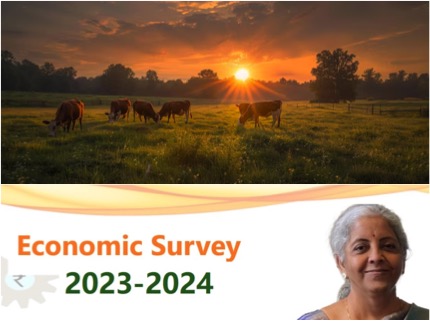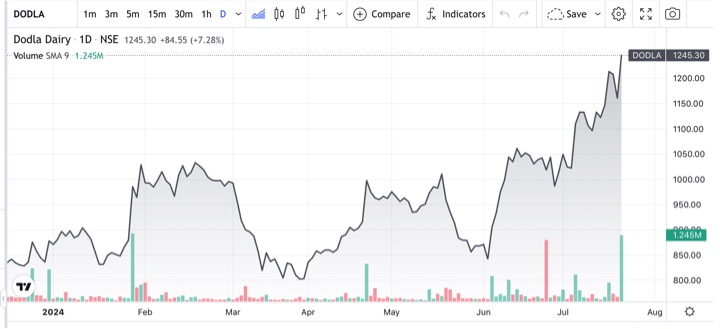There is a growing demand and acceptance for plant-based food products in India. Even though the size is small — new launches in this category were only 0.7% of the total launches in November 2019, which, however, grew to 2.1% in October 2022— experts expect this number to further increase in the coming years.
“Our research shows that 34% of Indian consumers are motivated to completely switch to a plant-based diet. This increased interest is mainly driven by consumers’ desire to improve their overall physical health, which took centre stage during the pandemic, and we expect that to continue,” says Tulsi Joshi, senior food and drink analyst, India at market research firm Mintel.
Plant-based food can refer to an array of products made from natural plant ingredients. These products are usually made from fruits, vegetables, oils, whole grains, nuts,and legumes, with no animal-derived items such as meat, milk, or eggs. Some examples of popular plant-based foods are tofu, tempeh, coconut and almond milk. Such items are globally known to address multiple issues such as health crisis, climate, and animal cruelty. They have become a global phenomenon in the past few years owing to a convergence of trends in consumer behaviour, product innovation and investment. Indeed, this surge has forced manufacturers and retailers to respond quickly to meet consumers’ interest with a number of brands that encompass meat, cheese, milk, and protein alternatives.
While the plant-based alternate protein industry in India is currently valued at `350 crore, it is expected to grow at more than 45% CAGR till 2030, says Anand Ramanathan, partner, Deloitte India.The sector is showing significant momentum with over 50 start-ups already active in the space. Increasing consumer shift towards making health-conscious choices in their food habits, awareness about protein deficiency and environmental concerns among early adopters are some of the key factors expected to drive long-term growth in the sector, he adds.
Plant-based food products have also become a necessity to achieve the ‘Zero Hunger’ target while reducing greenhouse gas (GHG) emissions from agriculture by 6% and in order to reduce meat consumption. The Organisation for Economic Co-operation and Development (OECD) and the Food and Agricultural Organization (FAO) of the UN project the global meat supply will expand, reaching 374 million tonne by 2030. The OECD-FAO Agricultural Outlook suggests that, following a business-as-usual path, SDG 2 on Zero Hunger would not be achieved by 2030 and GHG emissions from agriculture would continue to increase.
A global movement
India has the largest young population in the world — with more than 808 million people under the age of 35 years, with the 13-35 years’ group making up over 40% of the population. They are the most well-read, and the increased demand for plant-based food options is a direct result of this constantly growing awareness. “Adopting such a diet could be a potential solution to the rising health crisis of chronic diseases, improving their well-being and in solving the planet and climate problem by changing the way they eat,” says Romil Ratra, co-founder of plant-based food brand Plantaway Foods.
“Plant-based diet is a global movement,” says Abhishek Sinha, CEO and co-founder of GoodDot, a plant-based meat company, adding that it has the best environmental impact along with a cruelty-free footprint. Since its launch in 2017, the brand has seen almost 100% y-o-y growth. “Till last year, most of our growth was from retail sales, but B2B partnerships with Domino’s, Rebel Foods, Applebee’s and premium luxury chains have added an important growth dimension and partnerships with export opportunities in the offing in the future,” adds Sinha.
Besides consumer demand, taste and pricing also matter. For India, the biggest USP is taste, says Santhosh Stephen, MD of Symega Food Ingredients, which is part of the Synthite Group, a producer of value-added spices. “As long as the products taste good, and are rounded well with Indianness, there is a high likelihood of the products being accepted. Price comes next. For mainstream acceptance, we need to offer products at price points which deliver value to the customers. This does not necessarily mean cheaper products but smart pricing that justifies the novelty and experience for the consumers. The next factor, which is becoming more prominent lately, is how less processed, or how close to clean labels your products can be,” he says.
Most brands that Stephen works with are stressing on the above factors, and R&D at Symega Protein Innovation Centre (SPIC), Kochi, has been spending time and efforts to conform and exceed the quintessential requirements.
Studies show that proteins derived from plants are healthier than those derived from animals. Animal meat is well-known for its high nutrient content. Eating a variety of animal meats and organs can get all the amino acids needed to make bodily proteins. But swapping all that animal protein for an equally diverse diet of plant-based proteins like nuts, seeds, and beans can provide an equal number of benefits. “This is due to the fact that these foods contain a similar range of nutrients. They have more nutrients per gram of calories than other foods. They also contain fibre which animal proteins lack,” says Arushi Jain, director of Akums Pharmaceuticals and Drugs, a plant-based protein manufacturer. Several brands are also focusing on the plant-based dairy market. Only Earth, the makers of plant-based milk, launched its range in June 2021 and has scaled the business to over 18 cities in India covering over 1,500 modern trade and general trade stores. Today, the brand aims to cross the `100-crore revenue by 2026.
“Dairy has been an important part of the food system in India for centuries. Plant-based milk items like soy and coconut milk have been used for a very long time here. Both dairy and plant-based alternatives can co-exist as they cater to a wide array of consumers whose preferences are different,” says Kunal Mutha, founder of Only Earth.
In fact, multinationals like Danone and Nestle have recently pivoted towards plant-based alternatives to address the growing demand from the consumers.
While chicken and meat are proteins, soy meats and tofu have variants like soy chicken, soy fish and soy duck, which are being marketed as mock meats. “One can make tandoori, Chinese or continental dishes without any fuss. The variants have mock chicken wings, chicken lollipops that can be enjoyed in winters without compromising on one’s health. Mushrooms are amazing substitutes.Gucchi or Shiitake, the textures are meaty and nutritious,” says chef Nishant Choubey, co-founder of Street Storyss, a vegetarian restaurant based in Bengaluru.
For Choubey, plant-based diet is a trend and has sensitised not only the taste buds of vegetarians but also non-vegetarian eaters. “With the kind of success that we see in India regarding vegetarian eateries like Saatvik, Street Storyss and Burma Burma, apart from south Indian outlets, I experiment with ingredients, and plant-based meat is one of them,” shares Choubey, who curated a dish with jackfruit nihari, pulled soy duck and tempeh aglio olio recently and which has been well-received by his patrons.
Price as a driver of intent
In terms of price parity, non-profit think tank Good Food Institute conducted a study with Mindlab to see price as a driver of purchase intent and the willingness of consumers to pay more for plant-based products. When explicitly asked, consumers ranked price as the second-most important factor (behind taste) to encourage or discourage them from purchasing a plant-based product. It also states that plant-based alternatives could reach price parity with meat as soon as 2023 and that cultured meat (produced in a lab) could be competitive with conventional meat by 2030.
Mintel’s Global Consumer research also reveals that 53% of Indians agree that plant-based food/drink should cost less than animal-based products. Therefore, it is important for brands to educate consumers on various health benefits of switching to a plant-based diet from protein intake to gut microbiome and boldly call out/communicate them on pack. Brands can leverage food service to introduce trials and samplings to drive the category forward.
The awareness has accelerated its acceptance to a niche section of society who are conscious of consuming such products, and the industry has spiralled up in just the last two-three years with Gen Z, millennials, and Gen Alfa making a transition towards a well-balanced and ethical lifestyle, food choices, and keeping their choices guilt-free.
“India has an extremely large number of individuals who eat meat. However, unlike the West, meat eaters in India eat meat only once or twice a week. Most of the time they consume vegetarian food. Also, there are many days in which meat is not eaten because of religious reasons.
Thus, for plant-based meat there is a cultural tailwind in India. In the next few years India will emerge as one of the world’s biggest plant-based meat markets,” says Nikhil Vora, founder and CEO of Sixth Sense Ventures, which is one of the investors of GoodDot.
Rising costs put pressure on gross margins of brands. “We cannot increase prices if we want to stay competitive with animal meat. However, rising costs also affect animal meat, the costs of which have been rising consistently over the past two years, so we are forecasting for higher volumes of people trying out plant-based meat as the price differential becomes smaller,” says Sohil Wazir, chief commercial officer of Blue Tribe Foods, a plant-based meat startup.
There are factors contributing to the rising costs in general. The rupee-to-dollar rate has increased by 11% since the past one year, explains Wazir. “Since some of the raw materials are imported, the exchange rates lead to direct inflation. Shipping rates (especially from China and the US) have increased to 200% from rates prevailing two years back. These two directly affect the rate of raw materials,” adds Wazir.
ALSO READ
‘We hope to change the way people experience museums’
While product pricing is still a deterrent for many who may want to try out products, ingredients used in such products are specialised, and usually imported. “As brands make a conscious effort to reduce the price for consumers, a route that some of them have chosen is to use traditional, indigenous ingredients such as jackfruit. It helps them with pricing as well as positioning as a more familiar alternative. As the demand grows, I expect the supply chains to become more robust, more ingredient suppliers coming to the fore, making products available at more affordable price points,” says Stephen.
So even if consumers are willing to make the trial, and based on their experience are considering this as an occasional purchase, Stephen does not expect consumers to make a complete shift from a non-vegetarian to a vegetarian/vegan lifestyle. “Plant-based products are emerging to be a choice which is equally acceptable for vegans, vegetarians, flexitarians, and non-vegetarians. And not many categories in the Indian market presently can make this claim and assume this universal appeal,” feels Stephen.
Joshi of Mintel feels plant-based brands will have to be available at affordable price points, especially in a price-conscious market like India. “This becomes even more important during uncertain economic times. The brands will have to achieve economies of scale, where they can compete on price with regular variants. Therefore, the price-to-value equation will play a significant role for plant-based products to sustain/ play a long-term game in the Indian market.”
Being a very niche industry with small and modern technology, the cost is likely to be higher than a normal meat manufacturer. “Although most products are priced 2-3x their conventional counterparts, improving infrastructure is expected to drive price parity in certain sub-segments, further boosting adoption going forward,” says Ramanathan of Deloitte India.
Slow and steady
But globally, when the world is tackling the cost-of-living crisis with big impact on food purchasing decisions, plant-based food seems to have lost its sheen. The energy crisis in Europe, the Ukraine war or the inflation, which is at its peak in the UK and the US, could affect sales, especially in a non-meat-eating country like India, where there is less awareness or cultural resistance. Data from Deloitte’s Future of Fresh survey, which surveys 2,000 US consumers for views, says willingness to pay a premium for plant-based alternative meat (PBA) dropped 9 percentage points from last year and remained below the number of people who say they would pay a premium for the best traditional fresh food. To return to growth, PBA meat producers should explore ways to expand the addressable market, bring down relative costs, and create formulations that provide health benefits while maintaining taste.
India is still in its early stages with only 1.5% of food and drink launches in the last few years between Nov 2019 and Oct 2022 having plant-based claims on pack, as per Mintel Global New Products Database. Although Indian consumers want to adopt plant-based diets, they lack the understanding to do so, feel industry observers. “Up to 32% of Indians agree that a plant-based diet is the same as a vegetarian diet and 42% of Indians agree that it is hard to understand the difference between vegetarian, vegan and plant-based products,” says Joshi of Mintel. So, to go mainstream in India, plant-based brands will have to drive education and awareness over the health benefits of their products.
Meanwhile, brands feel the adoption is likely to get stronger with consumers becoming more receptive to the category, more brands entering the segment, celebrities and athletes backing it and big investments. Even as celebs like Virat Kohli, Anushka Sharma and MS Dhoni turn investors to endorse plant-based products, FMCG majors like Licious and ITC have also entered the segment. ITC launched its plant-based burger patties and nuggets while online meat seller Licious launched a plant-based meat brand called UnCrave.
Wazir says, “We expect this category to grow exponentially over the next few years on the back of innovation in product and reduction in cost due to scale.”



























